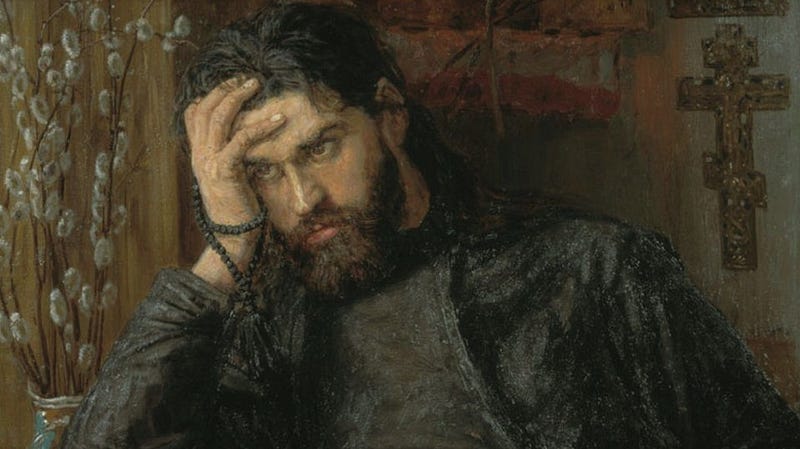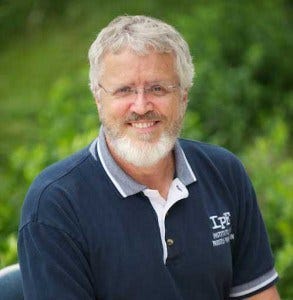Looking at The Heart of the Diaconate
Deacons are clerics. I’ve stated that many times in this blog, and it cannot be stated plainly enough. Scour the Catholic blogs and you will find mention of “lay deacons” and other implications that permanent deacons are not “real clerics.” But clerics they are. Canon Law could not be more clear.
“Through the reception of the diaconate, a person becomes a cleric”(Can. 266 §1).
But there is a difference between being recognized as a cleric in ecclesial law and living out a clerical identity in practice. The latter is something many deacons struggle with, to the detriment of their vocation.
I remember an encounter I had a while back with the chancellor of our diocese. We were at a Christmas gathering, and it was a couple of years before my ordination. I had just been installed as a lector a few months before. When the topic of my diaconal formation came up, he looked me square in the eyes and said with much intentionality: “Remember: when you become a deacon, you will be a cleric.”
The directness of his remark took me aback. My impending clerical status was something I was aware of, and looking forward to. This was by no means new information to me. But there was deep purpose behind his words that I couldn’t shake.
So I wasn’t surprised several months later when the director of the permanent diaconate for our diocese related to our entire formation class something the chancellor had told him during their last conversation. “The problem with deacons in our diocese is that they don’t know that they are clerics.” He used these words to impress upon us the importance of our clerical identity.
For these and other reasons, clerical identity is something I try to be very intentional about in my own vocation. There are challenges, to be sure. Being part of the Latin Church, for centuries the only model of clerical life we had was a celibate one. Even though the diaconate as a permanent order was revived fifty years ago in the West, married clergy is still something relatively new in the Latin Church. But celibacy is not the totality of clerical life. The Eastern Churches, for example, have a long tradition of married deacons and priests who are able to maintain their clerical identity while also living as husbands and fathers.
But certainly more needs to be done in the Church to help married Roman deacons shore up their clerical identity. Doing things like forbidding them to wear clerical attire (as some bishops do) certainly doesn’t help. I, for one, find that it is much easier to be mindful of my own clerical identity when I look the part.
I say all this as background to some initial comments I wish to share on Deacon James Keating’s book, The Heart of the Diaconate. Deacon Keating is the director of theological formation in the Institute of Priestly Formation at Creighton University, and the director of the Office of the Permanent Diaconate in the Archdiocese of Omaha.
I learned of this book after listening to a wonderful podcast by Deacon Keating which I discovered while looking for inspiring car-listening to help me prepare for my own ordination. Take 30 minutes to listen to this. You won’t be disappointed. He speaks of the intimate relationship the deacon is called to have with Christ, the contemplative aspect of the diaconate, and the unique way deacons are meant to bring Christ to the world (and no, it’s not all about corporal works of mercy, which all baptized Christians are called to do).
The way Deacon Keating spoke of the diaconate resonated with me greatly, and so I decided to purchase his book, The Heart of the Diaconate. My plan is to share my thoughts and commentary as I read along.
I’ve only just read the introduction, so this is not a book review by any means. But I was struck, and slightly troubled, by something Deacon Keating mentions in the first few sentences.
“The diaconate exists as a vocation of creative tension — a cleric living a lay life — and must remain in this tension if the church is to possess, in any concrete way, a diaconal imagination.”
“A cleric living a lay life?” Isn’t this the very thing my chancellor (and countless others) identify as a chief problem with the diaconate as it stands today?
If it is, one could argue it is a problem of the Church’s own making. In the National Directory for the Formation, Ministry, and Life of the Permanent Deacons in the United States, states that, “the United States Conference of Catholic Bishops specifies that permanent deacons should resemble the lay faithful in dress and matters of lifestyle” (89).
But what does this “resembling the laity in matters of lifestyle” mean? Well, in addition to the fact that most permanent deacons are married, it also means many have secular jobs. This is because permanent deacons are not paid by the Church for their ministry. A minority are employed by the Church, and not always in ministerial roles. I work in campus ministry; other deacons I know who work full time for the Church include a youth minister, an archivist, a facilities manager, and a retreat center director. But most deacons work outside jobs to support themselves and their families. This, in my opinion, contributes more to the need for deacons to “resemble the laity in matters of lifestyle” than the fact that they are married.
And while the National Directory speaks of deacons working secular jobs as an opportunity to “witness to the laity on how they too might integrate their baptismal call and state in life in living their Christian faith in society” (56), most would argue that the ideal would be every deacon working full time for the Church in ministry. Deacons are, after all, sacred ministers. Working in a secular profession may be a necessity, but it is not their vocation.
A deacon is a cleric. He is bound to pray the Liturgy of the Hours. He is bound to obey his bishop. He is called to a life immersed in the scriptures. He is called to have intimacy with Christ, and a rich interior life. He is subject to obligations that laity are not, including the obligation to remain celibate should his wife predecease him. And though he may have a secular job and live in a suburban home, he is not a lay person.
What Deacon Keating calls the “creative tension” of a cleric living a lay life, others may call the scandal of the diaconate. The fact that our diocesan chancellor has felt the need on more than one occasion to remind deacons that they are clerics illustrates the problem. When you are working a secular job and wearing secular clothes for the majority of your waking hours, it can be very easy to forget that you are an ordained minister of Jesus Christ. Deacons need to be shored up in their identity as clerics. I have been very blessed to be surrounded by priests and deacons during my formation who get that. But I can’t help but feel my situation is not common.
I want to reiterate: I really, really liked Deacon Keating’s podcast on this subject — so much so that I shared it with my entire formation class, and my formation director then passed it along to every deacon in our diocese. And I’m still very excited about reading this book. Deacon Keating says some other wonderful things about the diaconate in his introduction.
“A future diaconate must be one that involves a deeper appropriation of the servant identity of Christ, an appropriation that ignites the public witness of deacons so as to attract younger men to this vocation and end what can only be called its ‘retirement’ culture.”
Can I get an “Amen?”
“The men who carry the diaconate into the future will be those who have a deep interiority, a ministry sustained by conscious communion with the Trinity, and an enlivened sense of evangelization.”
Preach it, Deacon!
Deacon Keating mentions a need for more diaconal vocations among minority ethnic and racial groups in the Church. He speaks of a need for more specifically diaconal formation in the seminaries, as every priest is first a deacon. This is to address what he identifies as “an anemic diaconal imagination in many priests… There can be no sacrifice (priesthood) without service (diaconate).”
He writes of the need for diaconal formation programs to focus less exclusively on pastoral ministry and more intentionally on “the spiritual life, the theological life, and the liturgical life.”
“One cannot be ordained simply to ‘help out,’ for ordination is a sacred ministry, and the one so ordained has to be fascinated with the sacred and interested in contemplating it so as to better share its beauty in prayer with others, and to preach and teach with power.”
That single sentence from Deacon Keating sums up well my thoughts about the need for deacons to be more mindful of their true identity as clerics, and not lay men who get to help Father out with certain things. Contemplation and prayer, preaching and teaching — this should be the life of the deacon, even a deacon with a secular job and a family. Because this is the life of a cleric.





